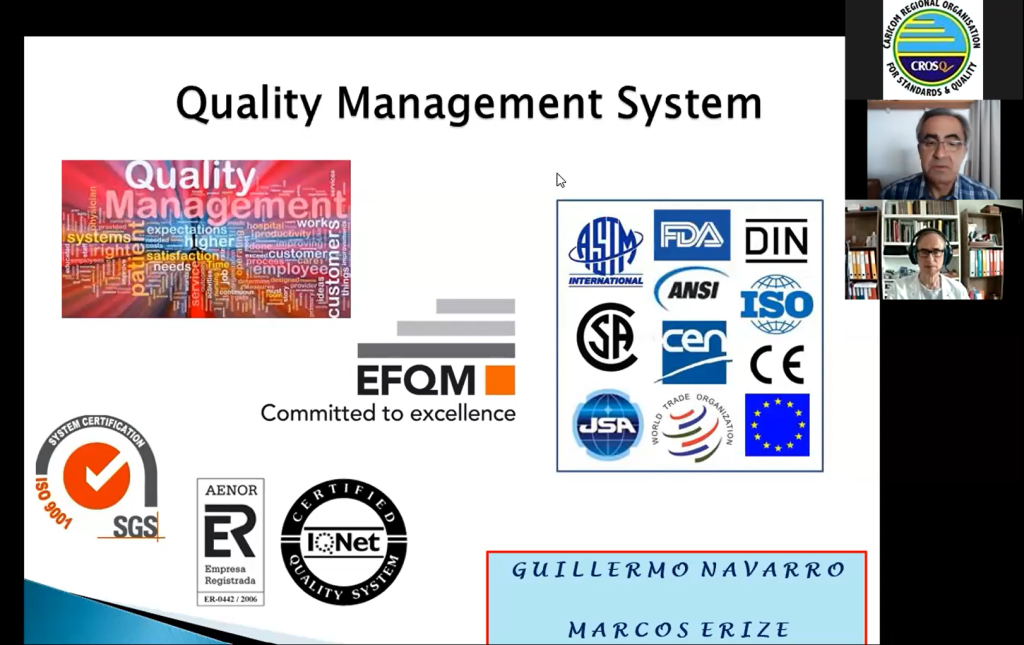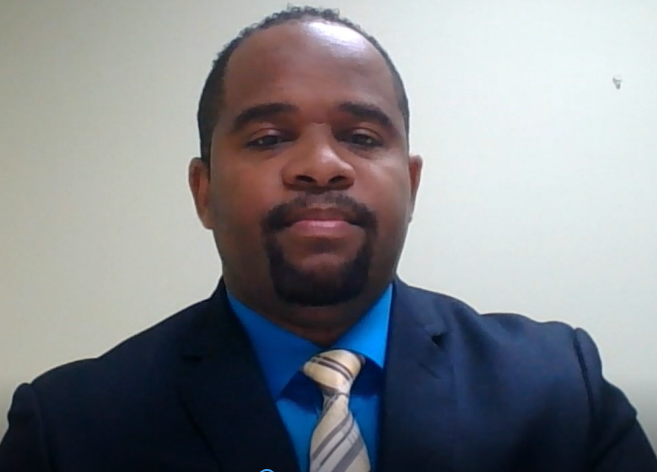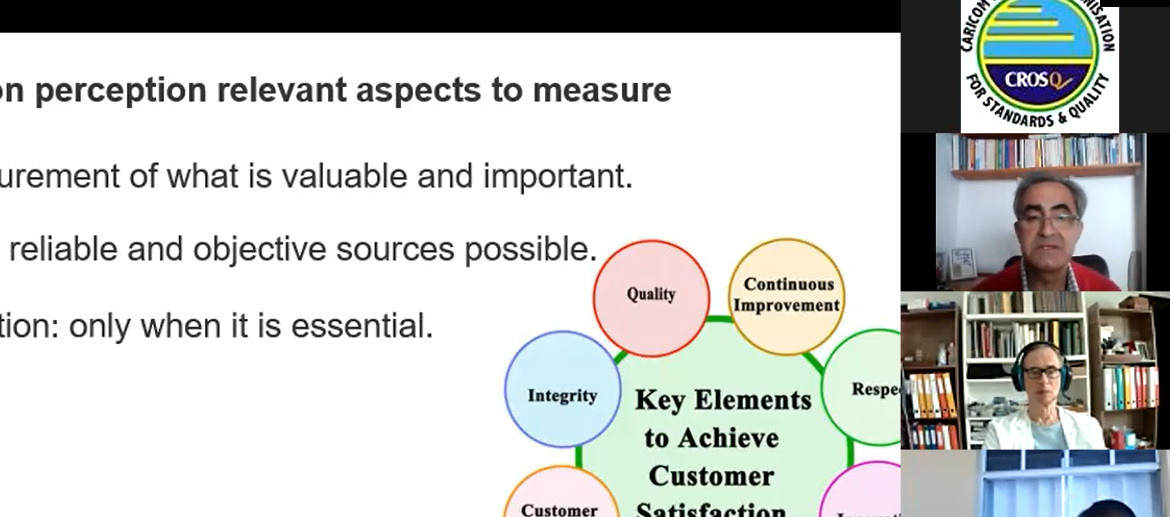Meteorologists and Metrologists Collaboration Takes Root
Regional meteorologists were able to take advantage of 10 weeks of training in Quality Management. It was accomplished thanks to a collaboration between the weather experts, and metrologists, the measurement experts.
Concluded only a week ago, the series of 10 training sessions was part of a sub-project entitled “Metrology for Meteorology in the Caribbean” — (M4M), which is part of a larger project – “Regional Fund Quality Infrastructure for Biodiversity and Climate Protection in Latin America and the Caribbean”.
The sub-project linked the measurement community (metrologists) with the climate community (meteorologists). The aim was improving the quality of climate-related measurements, and also demonstrating how quality management can help the Met institutes in the region.
Funded by the Federal Ministry for Economic Cooperation and Development (BMZ) Germany and administered by CROSQ and the German National Metrology Institute (PTB), the workshops included both presentations by Dr. Guillermo Navarro of Chile, and Dr. Marcos Erize, who is based in Brazil, and practical sessions on a virtual platform.

The training was offered to the National Metrology Institutes (NMI) and National Meteorology Services (NMS) of Antigua & Barbuda, Barbados, Dominica, Grenada, Haiti, Jamaica, Saint Lucia and Trinidad & Tobago.
At the end of the 10 weeks, the participants indicated they found the workshop and training sessions helpful directives to improving their department’s operations.
Participants indicated it was a lot of information to cover over the period but the practical sessions helped solidify the information and provided them with experience in preparing their organisations for implementation of a QMS.
“The course, I feel it was very information packed. I appreciated the examples that we could have related to from the Met Service perspective; I feel like I know more about the QMS system and what needs to be done if you are going to implement one and the benefits of having a QMS system to your organisation,” one participant said.
Another indicated: “The course is a very good course. I have learnt a lot over the past few weeks. I like the fact that we had homework and practical cases to work on because now I can actually take the work we’ve done over the last few weeks and drop it straight into the office. So it’s like I got a chance to work even during the course. One thing I would have probably liked to see a little bit more on was the auditing because we did one here and I would have liked to at least know a little bit more about auditing and how you can really get it done the proper way.”
This ten-week training is led by and facilitated by CROSQ through Technical Officer, Metrology, Mr. Nicol Best, and 11th EDF-TBT Project Assistant, Ms. Patrine Hinds.

Mr. Best explained theM4M Project benefitted both groups of scientists and there were benefits to each group. For metrologist, he indicated the value added was their ability to ensure and provide support for measurement traceability to the meteorologists through accurate measurements. Meanwhile, he thought metrologists would have been able to benefit through the ability to acquire equipment, knowledge and skills through an on-going Mentoring Program.
The experience also gave metrologists the opportunity to learn and understand the different challenges faced by meteorologist in regard to measurement and quality.
“Through this intervention, meteorologists are being afforded the opportunity to build capacity in quality management which would be great for the development of their operations; and this interaction at the regional level has also enabled both scientific communities to be strengthened through the sharing of knowledge and experience through training.
“Based on the apparent need for quality management systems to be developed and strengthened, the Meteorologists have been able to acquire training and are in the process of implementing some of the teachings from the capacity building activities. The project also seeks to build capacity in the area of Rainfall Intensity with a proposed training workshop scheduled for early 2022. “Witnessing the drive and determination of the participants to learn more about their various fields and the importance of measurement is worth the effort put into the activities. Although the project would end by mid-2022, project sustainability is an area of great concentration with a specific focus on continued communication, information and knowledge sharing, collaboration and capacity building,” said Mr. Best.






